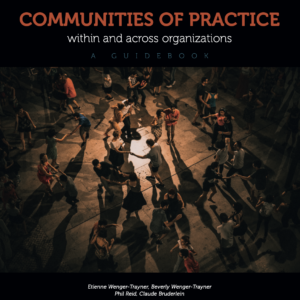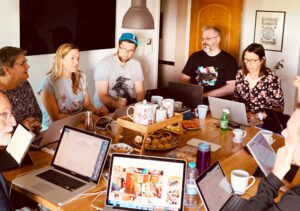NOTICE: There is an updated version of all these FAQs on our new website:
Are the new “web 2.0” technologies relevant?
Technology has always been relevant to communities to help members connect across time and space and share relevant resources. Web 2.0 technologies are often associated with new, more “horizontal” ways to connect and share information, networked thinking, and new forms of representation—all uses of technology that are very much aligned with the peer-to-peer learning typical of communities of practice. There are many different tools and for each tool, many different realizations; and there is also a great variety in the ways people and communities use these tools. Yet practically, it is useful to review briefly the potential that these new technologies hold for the learning of communities of practice. However, the use of these technologies brings up all sorts of delicate community issues. Who has the right to read, edit, or administer a wiki? Who is an author on a blog? How do members keep track of where relevant events are happening and relevant things are stored? Will a collective resource become incomprehensible without some level of coordination? How do members manage the mix of private and public spaces? The new tools emphasize user control and self-organization, but their effective use by communities often entails more coordinating work and development of shared practices than one would expect. Finally, the number of offerings of new and different types of technologies grows so quickly that at least some community members need to act as “technology stewards” staying updated on behalf of the community to spot the best tools to support the community activities without overwhelming the members.| << Can a community exist only online? | Is social networking useful? >> |
For more information, click here:
For a more precise definition, see our theory page on communities of practice:
For a bit more info, see our general (but brief) introduction to communities of practice and their use in various contexts:
For practical advice on cultivating communities of practice, see our new guidebook:
For workshops on cultivating communities of practice:


